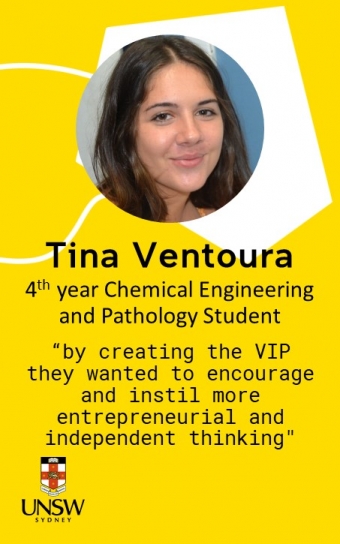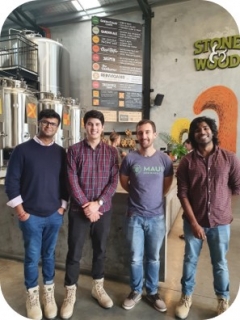
I vividly remember hearing many of my friends last year tell me all about their experiences, both pros and cons, from various Vertically Integrated Projects (VIPs). I was incredibly curious and found myself late last year scouring through the copious amounts of VIP projects. I came across Biotic-H2, a new project come 2021, looking at sustainably producing hydrogen gas from food and beverage waste. I was intrigued, especially as I had been craving more research and hands-on lab experience from my degree (especially after being in lockdown for half a year, although this would come to repeat itself this year).
A year later, 9 months into the VIP, I’m incredibly glad that I applied. An interesting element of the project that I wasn’t initially aware of was that the VIP was actually formed off the back of a start-up called switcH2, founded in 2019 by three Chemical Engineering students out of the UNSW Founders Program. Constantine Tsounis, co-founder of switcH2, told me that by creating the VIP Project they wanted to encourage and instil more entrepreneurial and independent thinking within the next generation of undergraduate students. They aimed to challenge the expectations of what a chemical engineering degree (or any engineering degree) allows you to do, and that despite the odds, you actually can build brand new technologies or even start up a company.
Like most projects in their inaugural year, our team spent the first term reviewing available literature and formulating our experimental plans for the following terms. As part of the Water Analysis team,& I’ve been able to work with other undergrad and PhD students to identify what types of waste possess the most useful organic material; such as waste from breweries, for downstream electrolysis to produce hydrogen. Also, to identify harmful components, and how to remove them.
Just after getting our plans approved and beginning the equipment training process, we were unfortunately locked down and restricted to desk-based work. However, despite the lack of lab access, we’ve still been able to progress the trajectory of the project through online work. One highlight was being able to speak to industry members from Tooheys about their different waste streams and the various techniques they use to treat their waste prior to discharge.
I’m intrigued now more than ever in the role that research and development can have on the outside world and in driving change, and I’m incredibly excited for 2022 to see where the VIP goes!


